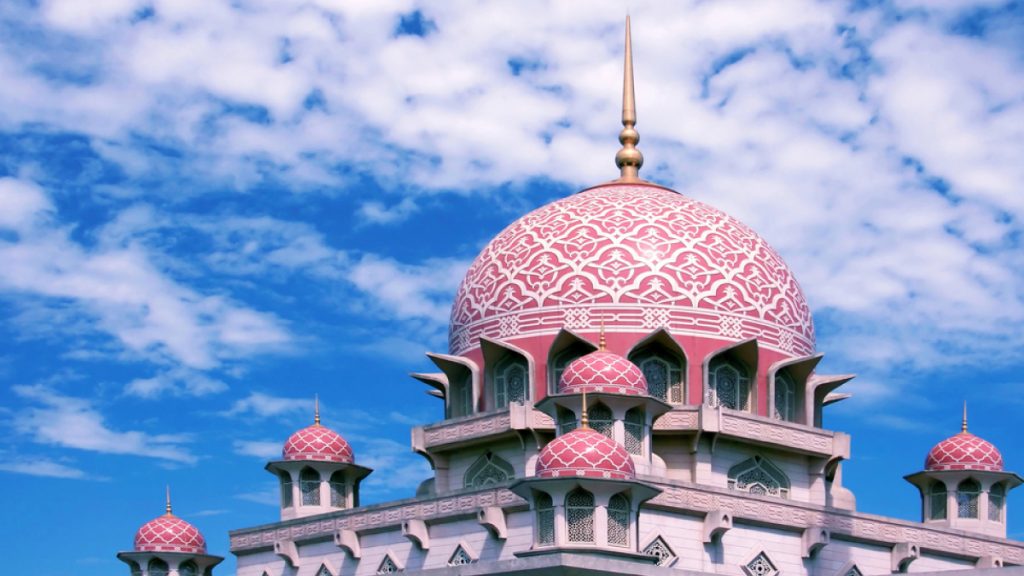Hari Raya Haji, also known as Eid al-Adha, is an important Islamic festival observed by Muslims in Malaysia and around the world. This holiday commemorates the willingness of Prophet Ibrahim (Abraham) to sacrifice his son as an act of obedience to God. It is marked by prayers, feasts, and the ritual sacrifice of animals, reflecting the values of faith, sacrifice, and charity.
Hari Raya Haji Dates (2024-2027)
| Year | Date | Day | States Observed |
|---|---|---|---|
| 2024 | 17 June | Monday | Nationwide |
| 2025 | 7 June | Saturday | Nationwide |
| 2026 | 27 May | Wednesday | Nationwide |
| 2027 | 17 May | Monday | Nationwide |
History and Background
Hari Raya Haji, or the Festival of Sacrifice, is one of the two major Islamic festivals, the other being Hari Raya Puasa (Eid al-Fitr). The festival honours the willingness of Prophet Ibrahim to sacrifice his son, Ismail, in obedience to God’s command. In commemoration, Muslims around the world perform the Qurban, or animal sacrifice, and distribute the meat to the poor and needy. This act symbolises the spirit of giving and selflessness that is central to the festival.
Malaysian Traditions and Cultural Significance
Special Prayers
Hari Raya Haji begins with special prayers known as Salat al-Eid, performed in mosques and prayer grounds across Malaysia. These prayers are a significant part of the festival, bringing the community together to worship and reflect on the values of faith and obedience.
Qurban (Animal Sacrifice)
The ritual of Qurban involves the sacrifice of livestock, typically goats, sheep, cows, or camels. The meat from the sacrificed animals is distributed to the less fortunate, emphasising the importance of charity and compassion in Islam. Many mosques and Islamic organisations in Malaysia coordinate these sacrifices and the subsequent distribution of meat.
Family Gatherings and Feasts
Hari Raya Haji is a time for families to come together and celebrate. Traditional Malay dishes such as rendang (spicy meat stew), ketupat (rice cakes), and lemang (glutinous rice cooked in bamboo) are commonly prepared. The festive meals are shared with family members, friends, and neighbours, fostering a sense of community and togetherness.
Visiting Graves
Many Muslims in Malaysia visit the graves of their loved ones during Hari Raya Haji to offer prayers and seek blessings. This practice serves as a reminder of mortality and the importance of living a righteous life.
Charity and Helping the Needy
Charitable activities are a significant aspect of Hari Raya Haji. Muslims are encouraged to give to those in need, reflecting the festival’s themes of sacrifice and generosity. Donations of food, clothing, and money are common, and community kitchens and food distribution centres are often set up to help the less fortunate.
Hari Raya Haji Celebrations Across Malaysia
Kuala Lumpur
In Kuala Lumpur, mosques such as the National Mosque and Masjid Jamek are filled with worshippers performing the Eid prayers. The city sees numerous Qurban activities organised by mosques and Islamic organisations, ensuring that the meat reaches the needy. Families come together for festive meals and to perform acts of charity.
Penang
Penang’s vibrant Muslim community celebrates Hari Raya Haji with prayers, Qurban rituals, and communal feasts. The island’s rich cultural heritage is reflected in the diverse culinary traditions enjoyed during the festival. Mosques and community centres play a central role in organising and distributing the sacrificial meat.
Kota Bharu
In Kota Bharu, Kelantan, Hari Raya Haji is marked by traditional ceremonies and communal prayers. The state’s strong Islamic heritage is evident in the large gatherings at mosques and the widespread practice of Qurban. Families prepare traditional dishes and engage in acts of charity, reinforcing community bonds.
Sabah and Sarawak
In East Malaysia, the states of Sabah and Sarawak observe Hari Raya Haji with local customs that blend Islamic practices with indigenous traditions. The festival is celebrated with prayers, animal sacrifices, and communal feasts. The multicultural nature of these states adds a unique flavour to the celebrations, highlighting Malaysia’s rich diversity.
Conclusion: A Festival of Faith and Generosity
Hari Raya Haji in Malaysia is a profound celebration that emphasises the values of faith, sacrifice, and generosity. It is a time for Muslims to come together in worship, perform acts of charity, and share festive meals with loved ones. Through the rituals of Qurban and community service, Hari Raya Haji fosters a sense of unity and compassion, reinforcing the principles of Islam and the spirit of giving.
Frequently Asked Questions (FAQs)
Is Hari Raya Haji a public holiday in Malaysia?
Yes, Hari Raya Haji is a public holiday in Malaysia, celebrated nationwide.
How do Malaysians typically celebrate Hari Raya Haji?
Malaysians celebrate Hari Raya Haji with special prayers, the Qurban (animal sacrifice), family gatherings, festive meals, visiting graves, and acts of charity.
What are some traditional foods eaten during Hari Raya Haji in Malaysia?
Traditional foods include rendang, ketupat, lemang, and a variety of other Malay dishes. These festive meals are shared with family, friends, and neighbours.
What are popular destinations in Malaysia to experience Hari Raya Haji celebrations?
Popular destinations include major cities like Kuala Lumpur and Penang, as well as states with strong Islamic traditions such as Kelantan, Sabah, and Sarawak, where the festival is celebrated with local customs and communal activities.

